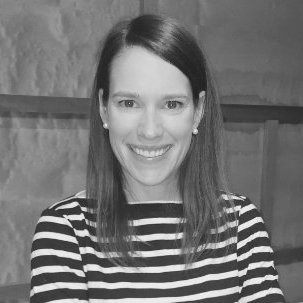School Choice: How to Decide Where to Apply
“Where should I apply??” That’s invariably one of the first questions that anyone thinking about getting an MBA asks us. And it’s a question that takes some diligence, and perhaps some introspection, to answer.
You want to be thoughtful about school selection for a couple of reasons. First, the application process is expensive and time-consuming. So, you want to limit your list to a small number of schools that make the most sense for you while maximizing your chances of admission. In other words, you want to maximize the ROI of your application efforts. Second, “fit” plays a huge role in the admissions process. If you don’t make the effort to research which schools are right for you and why, you’ll have a hard time articulating that in your essays and convincing the adcom that their school is the right place for you. So, let’s dive into a great way to approach the school selection process.
Know your range
A great place to start choosing schools is the rankings. (Stay with me here!) There are a number of different rankings out there with different findings, so we suggest familiarizing yourself with a few of them. With your GMAT score and undergraduate GPA in hand, you can go down the rankings lists and find the programs where your stats meet the average. That will give you a good idea of the range of schools where you’re competitive and where you’re a bit of an outlier. Other factors such as age, work experience, nationality, etc. will then skew your range up or down slightly. You may need to do some additional research to understand how your work experience compares to past admitted students, for example. Similarly, nationality can work for you or against you, depending on how many applicants from your country apply to your schools. If you’re not sure where you stand, this is a great opportunity to get a profile review by a professional through the forums or through the free consultations that most of the admissions consulting firms offer.
Note: That’s not to say that you shouldn’t apply to your dream school even if you fall outside of its range; but in those cases, it always makes sense to hedge your bets with a couple of target and/or “safer” schools. (No top school is “safe”, but there will be programs where your profile is more competitive than their averages.)
Narrow down from there
Once you have an idea of where you’re competitive, then you can start narrowing in on the specific schools and identifying the ones that are the best fit for your profile and objectives. Whether you have your heart set on HSW and are trying to decide which one or two other programs you’ll select in order to minimize your risk, or if you’re simply focused on getting into the “best” program you can, here are some factors to consider in your research.
Teaching method:
this is a big one, particularly if you’re considering HBS or Darden where the case method dominates most of the curriculum. If you’re not sure what the case method is, we strongly suggest reading up on it because it creates a unique classroom dynamic (relies on class participation – students do 85% of the talking in class, involves cold-calling, requires thorough preparation of the case prior to class, etc.) The other teaching methods you’ll find in the top programs are lectures and experiential learning (think immersion classes, team-based exercises, etc.) Pay attention to this and how it differs between schools because it will have a big impact on how you learn for the next two years.
Academic strength or research focus:
let’s start by clarifying that all of the top MBA programs offer a general management education with a broad selection of electives across all business subject areas (marketing, finance, operations, entrepreneurship, etc.) In other words, you will have access to fantastic professors and cutting-edge academics inanysubject no matter which school you attend. Gone are the days of Wharton being only a “finance” school or Kellogg being only a “marketing” school. With that said, certain programs may offer greater resources or specific programming dedicated to your area of focus. For example, Columbia has the Value Investing program, Wharton has the Health Care Management major, NYU Stern has the Luxury Marketing specialization, etc. Depending on which industry or function you’re targeting after business school, it may make sense to apply to programs that have a strong legacy in that field, either from the strength of the curriculum, breadth of electives, caliber of the faculty, prominence of research, or otherwise.
Recruiting power:
this goes hand in hand with the previous point. Applying to schools that have a history of placing graduates in your dream job(s) simply makes sense. Nearly all of the top programs publish employment reports for each graduating class so you can dig through those to understand who recruits at the school and on what scale. Generally speaking, all of the top schools will have diversified employment reports but you may see some bias. Wharton towards PE or Yale towards social impact, for example. (That’s not to say that you should automatically write-off a school simply because your target industry isn’t the #1 recruiting industry. It’s simply another factor to consider.)
Class size:
this one really boils down to personal preference. Programs like HBS and Wharton, for example, have large class sizes (>850 students) while others like Haas and Tuck have more intimate class sizes (<300 students). The size of your class will play a big role in the type of experience you have during your two years on campus. It’s important to understand the pros and cons of each and determine which one is better aligned to your objectives. For example, small programs boast tight-knit, congenial communities while larger programs offer greater breadth and diversity in each class.
Culture:
this one is a bit trickier to figure out, especially when you’re just starting the research process. It’s hard to really understand how the schools are different from simply browsing their websites. This is where engaging with the school (visiting campus, attending info sessions, etc.) and speaking with alums and current students really pays off. After a couple different discussions, you’ll start to get a sense for how the programs are different from each other. In terms of which culture is right for you, that’s a matter of personal preference. If you have a fierce independent streak, then maybe Booth is right for you. On the other hand, looking for a supportive, team-oriented environment? Kellogg or Tuck may be right up your alley. Lastly, we’ll say that while certain programs may have “reputations” that you’ve heard of, we recommend doing your own independent homework and deciding if you agree or not (they’re often over-stated, over-simplified, or out-dated in our experience).
Location:
this is one that we encourage you to be flexible with as much as possible. Remember that it’s only for two years and all of the top programs have widely influential brands that will in no way limit your career options to a 50-mile radius from campus. On the other hand, if your post-MBA goals are concentrated in a specific geography (i.e. NYC for finance and fashion, Bay Area for tech, etc.) then it does make sense that programs in those areas would rise to the top of your list. If you have a strong affinity for urban vs. rural locations, don’t ignore it entirely – just don’t let geography be the sole deciding factor.
Now that you know what you should be looking for, where do you find it? Unfortunately, there’s no one-stop-shop for school research so time and effort dedicated to getting to know your programs will be important. In our experience, these are some great resources to get you started – the more you read and learn, the better. If you’re working with a consultant on your application process, this is where he/she can help guide you towards schools that match your criteria but it’s still up to you to do your homework.
School websites:
you should really plan on familiarizing yourself with most of your target schools’ websites. An often over-looked page, in our experience, is the “About” page or “Mission Statement”. This gives you an idea of the highest-level objectives that the school is pursuing, upon which all of the other program elements are built. (For example, Columbia celebrates its unique placement at “the very center of business”. That’s so core to “who” Columbia is that it’s even built into one of the essay questions.)
Objective school profileson sites like Poets & Quants and Clear Admit: these profiles are great to get all of the program information in one place.
Rankings publishers(U.S. News & World Report, Financial Times, etc.): these are also great for aggregating data points and easy comparisons between schools.
Attending info sessions(webinars if you can’t attend in person): this is a must-do, particularly if you can’t visit campus.
Most importantly, you can’t beat speaking with alums or current students and visiting campus: this is where you can learn from someone who’s walked the path before you or is currently living it. These folks went through the application process themselves not that long ago and will give you candid answers to your questions, helping you really picture yourself on campus. Campus visits are equally valuable. I equate them to meeting a colleague in person for the first time after you’ve been communicating with them over email for the past 6 months. Not only is it great to put a face to the name but they often end up being different than what you had pictured in your head.
Honorable mention goes to the forums(GMAT Club, Beat the GMAT, reddit, etc.): while these can be great sources of anecdotal information and feedback, that information is not verified and you never know the qualifications of the person on the other end. So don’t boycott the forums but take them with a grain of salt. When in doubt, look for a more thoroughly vetted source of information before jumping to conclusions.
Bottom Line
Deciding which schools to apply to is more art than science. Start early and you’ll begin to get a “gut” sense for the programs that are right for you on multiple levels. Try to keep an open mind while still remaining true to yourself and your goals. An MBA from a top school is way too expensive for you to be anything less than 100% happy and excited about the 2 years that lie ahead. Best of luck!
**********************************
Melody( Co-Founder of Vantage Point MBA Admissions Consulting | Shaping Success Stories for Top MBA Program Applicants | Championing Women in Business ) After embarking on my own MBA journey, I co-founded Vantage Point MBA Admissions Consulting to help aspiring business school students get accepted to the top MBA programs in the U.S. and Europe. As President, I currently lead a team of over 25 superstar consultants to give our clients an unmatched experience, with a focus on white glove, personalized collaboration and mentorship.




